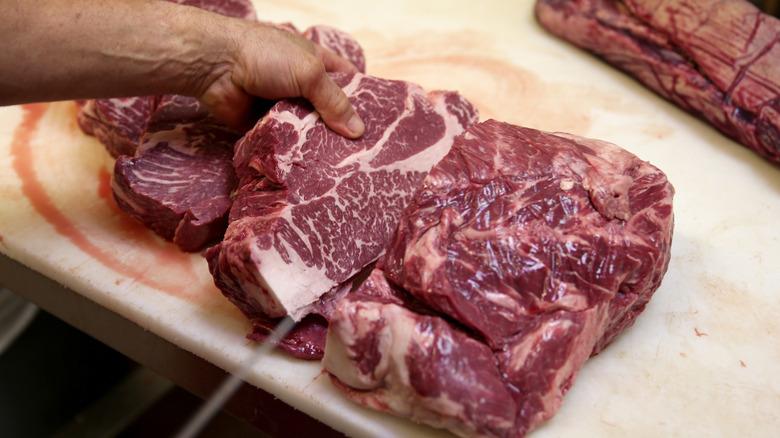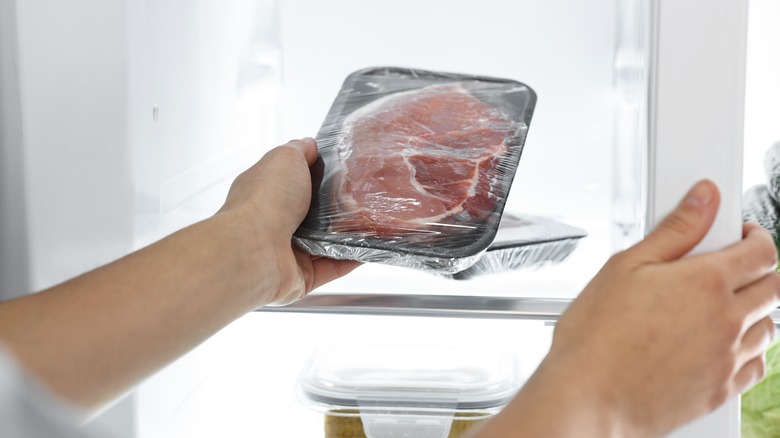Is It Crucial To Cook Meat Immediately After Thawing?
If you go grocery shopping once a week or less, you should be throwing most of the meat in the freezer as soon as you get home. As per the USDA, raw poultry, ground meat, and sausage will only last two days in the fridge while uncut red meat taps out after five days. (It's a sad, sad thing when expensive steak expires.) When it comes time to thaw the meat, though, what's the timetable there? Do you need to cook the meat the moment it's thawed? Well, a 1-pound chicken breast may only take five hours to defrost in the fridge, but a 20-pound holiday turkey might need five days – so there's no one-size-fits-all answer. Koji Fujioka, manager at The Local Butcher Shop, reassures us that precise timing is usually unnecessary. As he told The Takeout, "Unless you have reason to believe the meat had been previously thawed and refrozen or if the meat had been sitting for a while before being originally frozen, there shouldn't be any need to cook meat immediately."
Fujioka went on to explain, "Depending on how it is packaged, meat is best eaten within three to five days of it being completely thawed." Meat wrapped in an airtight package keeps longer than meat exposed to air, although it does have its own downsides. "If it comes vacuum sealed, the meat will likely be swimming in juices," said Fujioka. His recommendation is to drain and pat it dry. "I like to allow the cut of meat to continue drying off in the fridge for a day so it firms up and releases more of its water weight," he added.
How to store thawed meat
Kitchen wisdom tells us that the best way to thaw meat is in the refrigerator for maximum food safety and quality. The microwave and hot water methods, while quicker, can be major meat defrosting mistakes. Once the meat has thawed, you should leave it in the fridge until you're ready to cook. As Fujioka told us, the most important rule of thawed meat is, "Just keep it as cold as possible." (Without refreezing it, that is.)
Fujioka endorses leaving the meat in its original packaging, be that vacuum-sealed plastic or butcher paper. (If you've wrapped it in a plastic bag or foil for its sojourn in the freezer, you might want to remove it.) He went on to say, "It's best not to repack the meat into a Tupperware-like container because the moisture trapped in the container may promote the growth of pathogens and will not reduce oxidation." If you don't plan on cooking the meat right after it's been thawed, Fujioka recommends seasoning and salting it a day in advance. As he put it, "Salt will help minimize the growth of pathogens."
If you don't want to bother with thawing at all and you don't mind cooking unseasoned meat, you have another option open to you. Steak can be cooked while still frozen. Needless to say, they'll take somewhat longer to cook. Generally, around 50% more time is needed to ensure meat cooked from frozen reaches a safe internal temperature.

